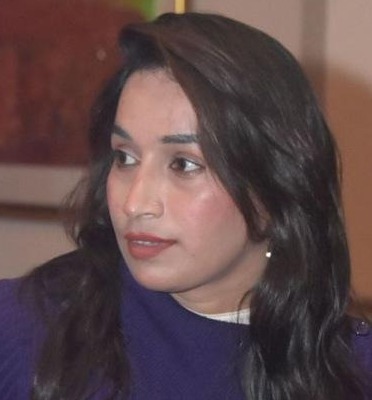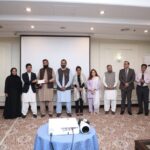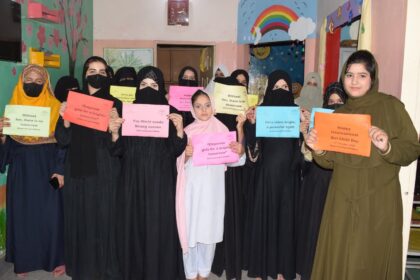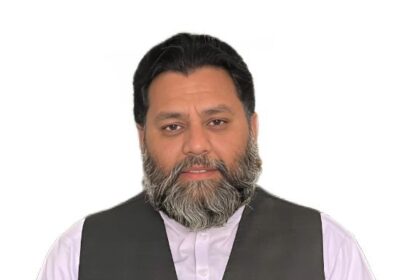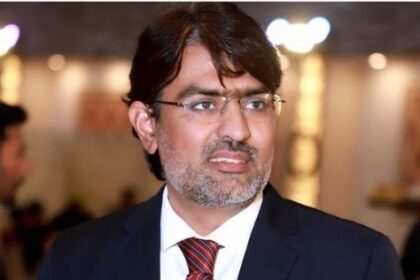International Day to End Impunity for Crimes Against Journalists — Journalists and Media Organizations Remain Unaware and Indifferent
Iqra Liaqat
Across the world, freedom of expression and freedom of the press are regarded as the foundations of democratic societies. Journalists are those individuals who risk their lives to provide truthful, transparent, and public-interest information. Yet, it is deeply unfortunate that this very profession — a beacon of enlightenment — often gets buried in darkness when journalists are threatened, assaulted, or even killed for their reporting.
In 2013, the United Nations declared November 2 as the International Day to End Impunity for Crimes against Journalists. The purpose of this day is not only to pay tribute to journalists who lost their lives in the line of duty but also to remind governments and institutions worldwide to take concrete steps for the protection of journalists and to ensure that perpetrators are brought to justice.
This day was established through UN General Assembly Resolution A/RES/68/163, adopted on December 18, 2013, which called upon member states to take effective measures to prevent and investigate crimes committed against journalists. The observance was especially motivated by the 2013 murders of French journalists Ghislaine Dupont and Claude Verlon in Mali — an event that highlighted that violence against journalists was no longer limited to conflict zones but had become a global crisis.
According to UNESCO, Reporters Without Borders (RSF), and the Committee to Protect Journalists (CPJ), more than 1,700 journalists have been killed worldwide over the past two decades while performing their duties. Even more alarming is the fact that in about 85% of these cases, the perpetrators were never punished. These statistics raise serious questions about global justice systems and pose a grave threat to the survival of press freedom.
UNESCO’s 2024 report notes that one journalist is killed every five days. Between 2020 and 2024, journalists were murdered in 45 countries, most of them while investigating corruption or other sensitive issues. In some nations, murders, kidnappings, enforced disappearances, and social media smear campaigns against journalists have become common.
Pakistan is among the countries where journalism has become a dangerous profession. According to RSF, since 2000, more than 150 Pakistani journalists have been killed or gone missing for various reasons.
Daniel Pearl (2002) — American reporter for The Wall Street Journal, kidnapped and murdered in Karachi.
Hayatullah Khan (2006) — Journalist from FATA, killed after reporting on U.S. drone strikes.
Saleem Shahzad (2011) — His murder was a severe blow to press freedom in Pakistan.
Arif Habib, Babar Qazi, and dozens of other reporters have lost their lives over the years.
In Pakistan, the lack of legal protection, resistance from powerful entities, and the weak, profit-driven policies of media organizations have further endangered journalists. In a democratic system, the media is often called the fourth pillar of the state — but when this pillar is weakened by fear and instability, the entire structure begins to tremble.
Unfortunately, slogans for “freedom of expression” are often confined to speeches and ceremonies, while in practice journalists face censorship, pressure, and violence. Another sad reality is that most journalistic organizations — both national and international — remain largely unaware of the importance of this day. Many limit themselves to token statements or social media posts, with no real strategy for ensuring journalists’ safety on the ground.
The International Day to End Impunity for Crimes Against Journalists, observed on November 2, is not merely a symbolic or protest day — it is a collective pledge: to never forget the voices that were silenced for speaking the truth. It sends a message to governments, media institutions, judicial systems, and the public worldwide that “an attack on journalism is an attack on the people’s right to know.”
In the age of social media, while the means of information sharing have multiplied, the dangers faced by journalists have also escalated. Digital harassment, online trolling, cyber surveillance, and legal persecution represent new, insidious forms of violence — inflicting psychological torment, character assassination, and economic ruin without spilling a drop of blood.




